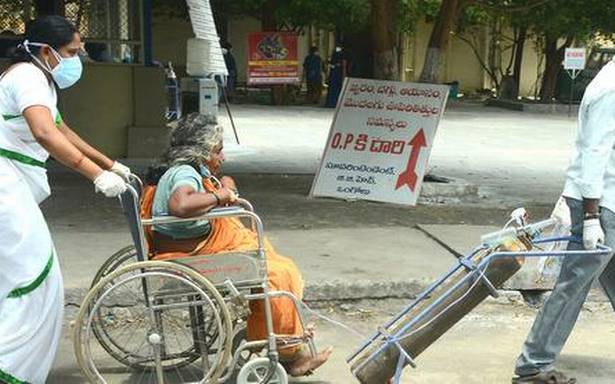The retail inflation rate remained high at 6.26% in June 2021, above the RBI’s upper limit for the second consecutive month. A sharp surge in the cost of edible oils (34.7% y-o-y increase in June) followed by significant increases in the prices of egg, fuel and light, fruits, and transportation contributed to the high inflation in June. In parallel, health costs expanded too, especially during the second wave of the COVID-19 pandemic. Health inflation increased to 8.4% and 7.7% in May and June 2021, respectively, from 3.8% in December 2019. A closer look at the health sub-group points to a consistent increase in the prices of medicines (8.6% y-o-y increase in June), medical tests (6.2%), hospital charges (5.9%), and consultation fees (4.5%). Health expenditure increased the most in Telangana and least in Kerala.
Contributing factors
The chart plots the inflation rates of select groups and sub-groups which contributed the most to the high inflation in June. Apart from edible oils and fats, eggs and fuel, the prices of fruits (11.8% y-o-y increase in June), clothing and footwear (6.2%), and household goods and services (5.8%) contributed to the rise.
Chart appears incomplete? Click to remove AMP mode
Health costs
The chart plots the Inflation rates for all the items listed under the health sub-group. While the prices of most medical items increased, the cost of spectacles increased the most (9.6% y-o-y) in June.
State-wise data
The graph shows the % growth in the health inflation index in June 2021 compared to June 2019 across rural (indicated by yellow) urban (indicated by green) and all regions (indicated by blue) of select States. In this period, health inflation increased to 23% in Telangana and only 7.9% In Kerala, which was the lowest among the States with relevant data. In general, the growth in health inflation was higher in urban areas compared to rural parts.
COVID-19 impact
According to SB1 Research, the total health expenditure is likely to increase by ₹66,000 crore due to COVID-19, which Is 11% of the health expenditure incurred in FY20. The report said this increased health expense will "also result in a squeeze in expenditure on other items of discretionary consumption." The report also argued for a better way to measure inflation during a pandemic given the changes in the spending pattern of consumers during a health crisis.
Source: MOSPI, SBI research
Source: Read Full Article

